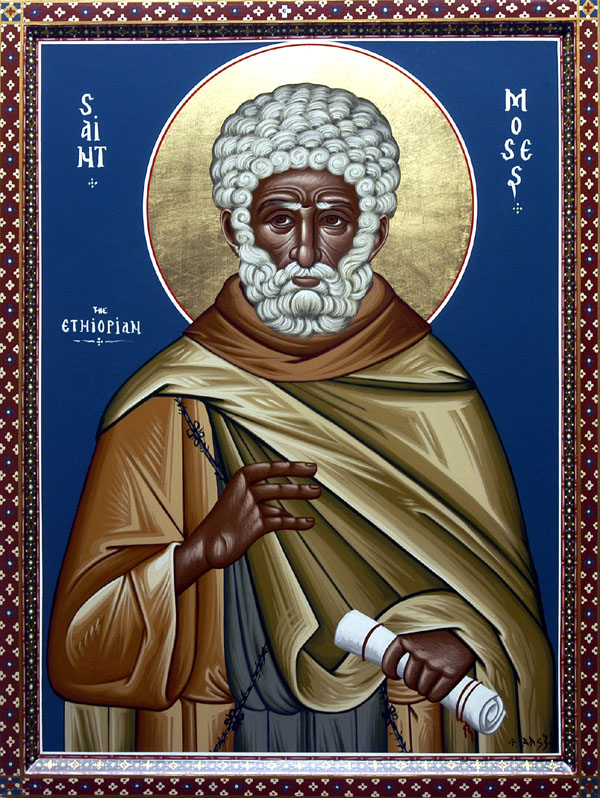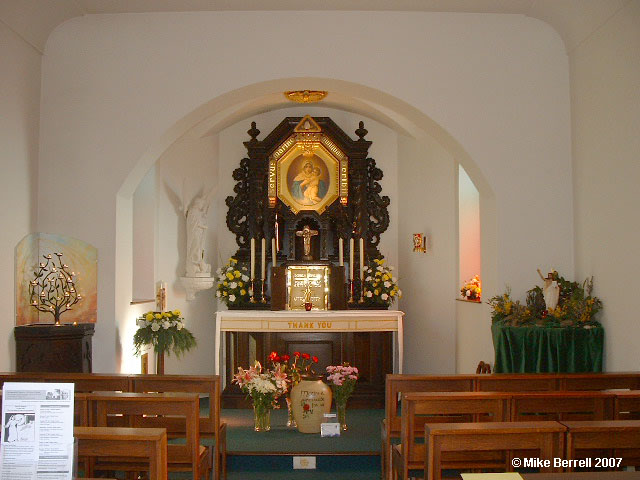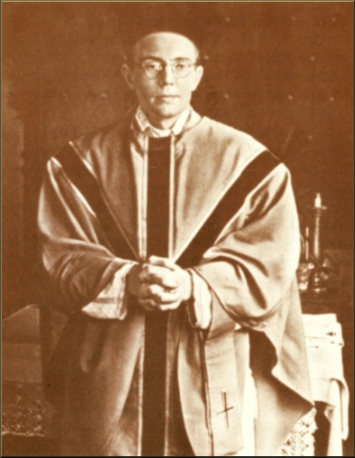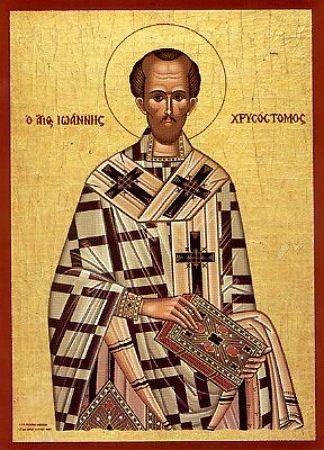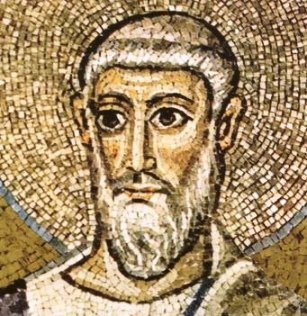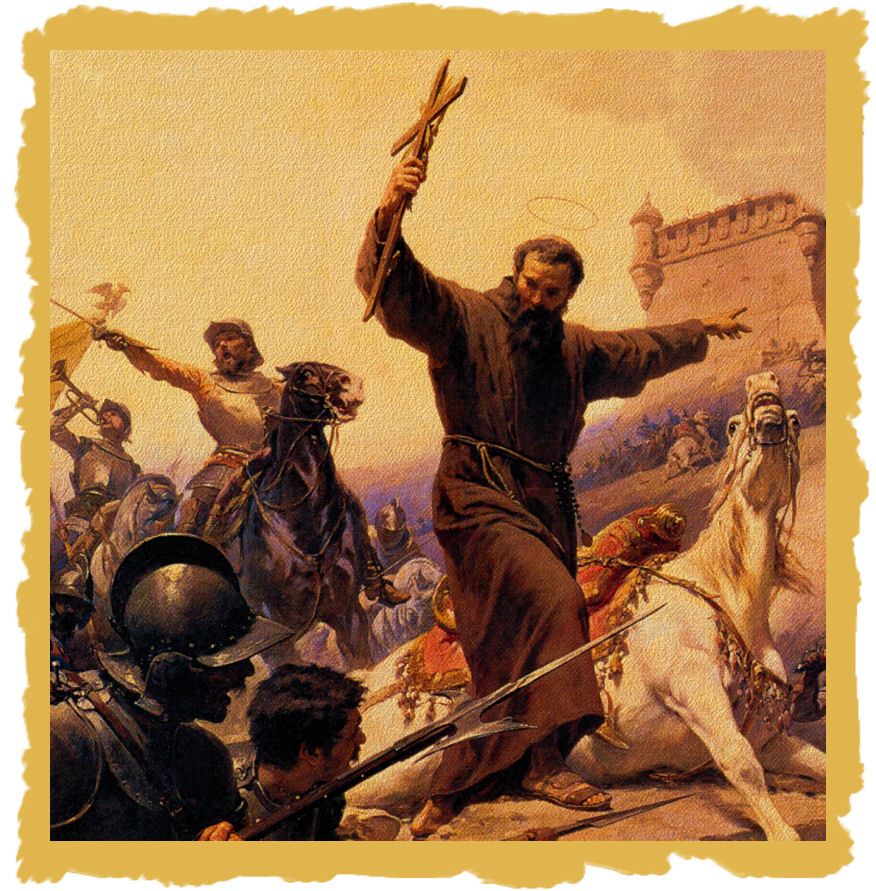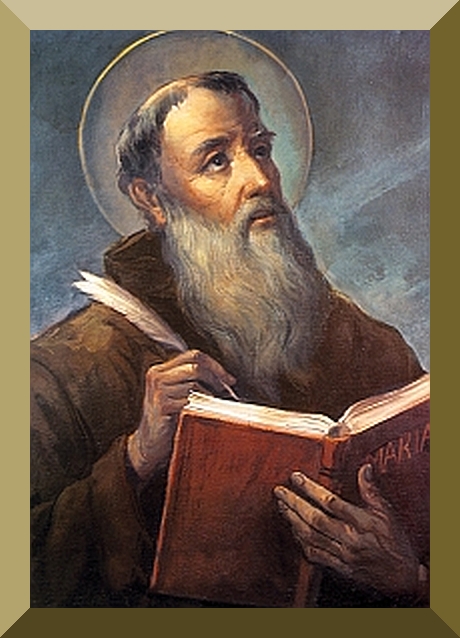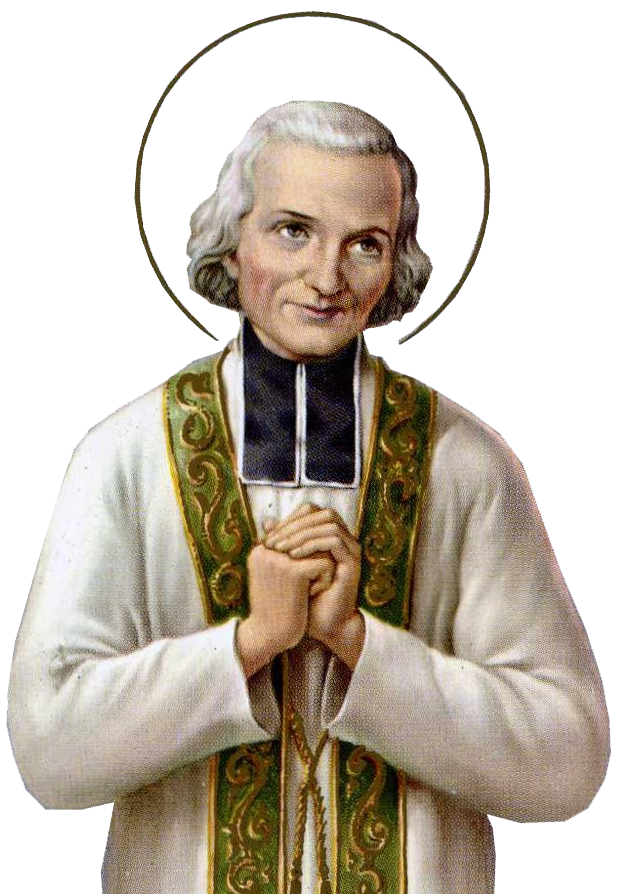
“…so that after I have preached to others, I myself will not be disqualified for the prize.” 1 Cor 9:27
Jean Marie Baptiste Vianney was a religious personality of unusual force. To the incomparable exclusion of everything else he addressed himself to the greater honor and glory of God and the salvation of souls. He accepted his obligation to holiness at an early age, and it took complete possession of him. Every word he uttered was spoken out of the world of religiousness. He brought to a conclusion an achievement which it would be hard for anyone to imitate. From this man there emanated an influence which cannot be overlooked, and the results of which cannot be contested.
“I owe a debt to my mother,” he said, and added, “virtues go easily from mothers into the hearts of their children, who willingly do what they see being done.”
In his assignment as parish priest of Ars, St. John achieved something which many priests would like to have done, but which is scarcely granted to any. Not over night, but little by little, the tiny hamlet underwent a change.
The people of Ars were unable to remain aloof for long from the grace which radiated from the remarkable personality of their priest. When a man attacks inveterate disorders and popular vices, he challenges opposition. St. John was not unprepared – he knew the enemy would raise his head. “If a priest is determined not to lose his soul,” he exclaimed, “so soon as any disorder arises in the parish, he must trample underfoot all human considerations as well as the fear of the contempt and hatred of his people. He must not allow anything to bar his way in the discharge of duty, even were he certain of being murdered on coming down from the pulpit. A pastor who wants to do his duty must keep his sword in hand at all times. Did not St. Paul himself write to the faithful of Corinth: ‘I most gladly will spend and be spent myself for your souls, although loving you more, I be loved less.’”
Saint John Marie would never consider Ars converted until all of the 200 villagers were living up to the ten commandments of God and the fulfillment of their duties in life.
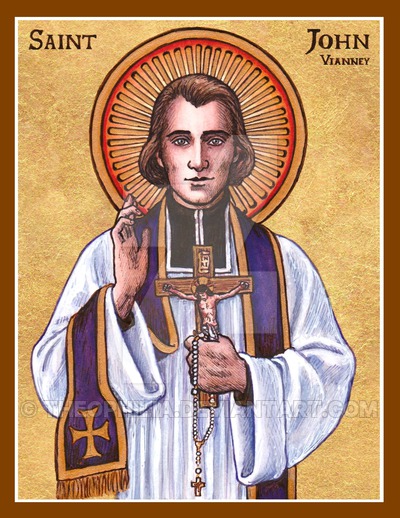
It took St. John Vianney ten whole years to renew Ars, but the community changed so noticeably and to such an extent that it was observed even by outsiders. There was no more working on Sundays, the church was filled more and more every year, and drunkenness fell off. In the end the taverns had to close their doors since they had no more customers; and even domestic squabbles abated. Honesty became the principal characteristic. “Ars is no longer Ars,” as St. John Vianney himself wrote; for it had undergone a fundamental change. Under his guidance the little village became a community of pious people, to whom all his labors were directed.
He delighted in teaching the children their catechism and he did this daily. After a while the grown-ups came too and he found that those who were children during the French Revolution were in complete ignorance of their religious duties. He taught the people love for the rosary and wanted everyone to carry one around at all times. It is truly astounding to reflect upon what St. John Vianney, with a staff of trained assistants, was able to achieve in the village in the space of a few years. What an immense amount of endeavor underlay his work will best be appreciated by anyone who has had to convert only a few drunkards to sanity.
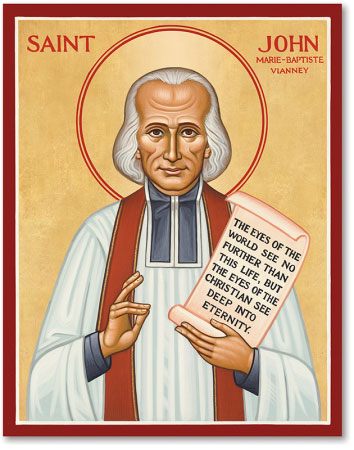
Jean-Marie sanctified himself while at work in the field or in the house. The supernatural world was ever present to him, but for all that he was neither a slacker nor a dreamer, his being a healthy and active temperament. “O what a beautiful thing it is to do all things in union with the good God!” he would say. “Courage, my soul, if you work with God, you shall, indeed, do the work, but He will bless it. You shall walk and He will bless your steps. Everything shall be taken account of – the forgoing of a look, of some gratification – all shall be recorded. There are people who make capital out of everything, even the winter. If it is cold they offer their little sufferings to God. Oh! What a beautiful thing it is to offer oneself, each morning, as a victim to God!”
In letters of consolation to a cousin, Frère Chalovet, whom obedience had sent to the Hotel-Dieu of Lyons and who was greatly tempted, he wrote: “My good friend, I write these lines in haste to tell you not to leave, in spite of all the trials that the good God wishes you to endure. Take courage! Heaven is rich enough to reward you. Remember that the evils of this world are the lot of good Christians. You are going through a kind of martyrdom. But what a happiness for you to be a martyr of charity! Do not lose so beautiful a crown. ‘Blessed are they that suffer persecution for my sake,’ says Jesus Christ, our model. Farewell, my most dear friend. Persevere along the way on which you have so happily entered and we shall see each other again in heaven…” “Courage my good cousin! Soon we shall see it, our beautiful heaven. Soon there will be no more cross for us! What divine bliss! To see that good Jesus Who has loved us so much and Who will make us so happy!”
Often when the Curé was returning to Ars from missionary expeditions, Mayor Mandy, who was anxious about the safety of his holy pastor, would send his son Antoine to accompany him on his journey home. “Even amid the snows and cold of winter,” Antoine afterwards related, “we rarely took the shortest and best road. M. le Curé had invariably to visit some sick person. Yet the tramp never seemed really long, for the servant of God well knew how to shorten it by relating most interesting episodes from the lives of the saints.
If I happened to make some remark about the sharpness of the cold or the ruggedness of the roads, he was always ready with an answer: ‘My friend, the saints have suffered far more; let us offer it all to the good God.’ When he ceased from speaking of holy things we began the Rosary. Even today I still cherish the memory of those holy conversations.”
St. John Vianney had loved Mary from the cradle. As a priest he had exerted all his energy in spreading her glory. To convince themselves of it, the pilgrims had but to look at the small statues of her that adorned the front of every house in the village. In each home there was also a colored picture of the Mother of God, presented and signed by M. le Curé. In 1814 he had erected a large statue of Mary Immaculate on the pediment of his church. Eight years earlier, on May 1, 1836, he had dedicated his parish to Mary Conceived Without Sin.
The picture which perpetuates this consecration, says Catherine Lassagne, is placed at the entrance to our Lady’s Chapel. Shortly afterwards he ordered a heart to be made, in vermeil (color), which is, even to this day, suspended from the neck of the miraculous Virgin. This heart contains the names of all the parishioners of Ars, written on a white silk ribbon. On the feasts of Our Lady, Communions were numerous, and the church was never empty. On the evenings of those festivals the nave and the side chapels could barely contain the congregation, for no one wished to miss M. Vianney’s homily in honor of Our Blessed Lady. The hearers were enthralled by the enthusiasm with which he spoke of the holiness, the power, and the love of the Mother of God.
The explanation of this mysterious transformation of the village of Ars can only be grasped in the remarkable manner that this simple priest realized that a man must always begin with himself, and that even the rebirth of a community can only be achieved by its renewing itself. We must expect nothing of men which is not already embodied within them.
On the basis of this perception St. John Vianney set to work, in the first place, upon himself, so that he could attain the ideal which he demanded of his parishioners in his own person. He took his own religious obligations with the greatest seriousness, and did not care whether the people noticed this or not. And finally the inhabitants of Ars said to each other: “Our priest always does what he says himself; he practices what he preaches. Never have we seen him allow himself any form of relaxation.”
St. John Vianney read much and often the lives of the saints, and became so impressed by their holy lives that he wanted for himself and others to follow their wonderful examples. The ideal of holiness enchanted him.
He placed himself in that great tradition which leads the way to holiness through personal sacrifice. “If we are not now saints, it is a great misfortune for us: therefore we must be so. As long as we have no love in our hearts, we shall never be Saints.”
The Saint, to him, was not an exceptional man before whom we should marvel, but a possibility which was open to all Catholics. Unmistakably did he declare in his sermons that “to be a Christian and to live in sin is a monstrous contradiction. A Christian must be holy.” With his Christian simplicity he had clearly thought much on these things and understood them by divine inspiration, while they are usually denied to the understanding of educated men.
The conversion of the whole parish was too unusual an occurrence for it to remain unknown. From the year 1827, there began the famous stream of pilgrims to Ars. People went to Ars from all parts of France, from Belgium, from England and even from America. The principal motive which led all these crowds of pilgrims to the priest of Ars was purely the desire for him to hear their confession and to receive spiritual counsel from him. They were driven to his thronged confessional by the longing to meet once and for all the priest who knew all about the reality of the soul.
The priest of Ars possessed the ability to see the human soul in its nakedness, freed of its body. Like St. Francis de Sales, he had the gift of “seeing everything and not looking at anyone.”
In confessing people this holy man, who had a fundamental knowledge of sin, strove after one thing only – to save souls. This great saint heard confessions from 13 to 17 hours a day, and could tell a penitent’s sins even when they were withheld.
In order to save souls one must be possessed of that holy love of men which consumed the priest of Ars. He would often weep in the confessional and when he was asked why he wept, he would reply: “My friend, I weep because you do not weep.”
“The great miracle of the Curé d’Ars,” someone has said, “was his confessional, besieged day and night.” It might be said with equal truth that his greatest miracle was the conversion of sinners: “I have seen numerous and remarkable ones,” the Abbé Raymond assures us, “and they form the most beautiful chapter of the life of the Curé d’Ars. ‘Oh, my friend,’ he often told me, ‘only at the last judgment will it become known how many souls have here found their salvation.’”
“In reality,” Jeanne-Marie Chanay writes, “he made but small account of miraculous cures. ‘The body is so very little,’ he used to repeat. That which truly filled him with joy was the return of souls to God.” How many occasions he had for such joy! M. Prosper des Garets relates: “I asked him one day how many big sinners he had converted in the course of the year. ‘Over seven hundred,’ was his reply.” Hence it is easy to understand the wish expressed by a Curé who made the pilgrimage to Ars: “Those of my parishioners who go to M. Vianney become models. I wish I could take my whole parish to him.”
One day, under the pretext of sending him on an errand, the Baronne de Belvey dispatched to M. Vianney a hardened sinner, who only set foot in the church at Christmas and Easter. It would seem that he had not been to confession since his first Communion. “How long is it since you were last at Confession?”, M. le Curé asked. “Oh, forty years.” “Forty-four,” the saint replied. The man took a pencil and made a hasty calculation on the plastering of the wall. “Yes, it is quite true,” he admitted, overcome with amazement. The sinner was converted and died a good death.
St. John Vianney possessed the gift of being able to understand the soul of a man in an instant, and, without any lengthy explanations, to feel at once what spiritual trouble was afflicting it.
He had a clear sighted vision which often enabled him to foretell to a man what would happen to him in the future. This gift of God overpowered the people who visited his confessional, and to whom he granted a word of pardon. The words and advice of the Curé were like darts; they penetrated deeply. He said little, but his little was enough.
On Aug. 4, 1859, Fr. John Vianney gave up his soul to God. He had been parish priest of Ars for 41 years. In 1925, he received the highest honor of the Church by being canonized and placed in the index of the Saints. Today over 500,000 people visit every year this simple farming town where they come to see the incorrupt body of one of the greatest saints in the history of the Church. The life of St. John Vianney is the story of a humble and holy man who barely succeeded in becoming a priest, but who converted thousands of sinners.
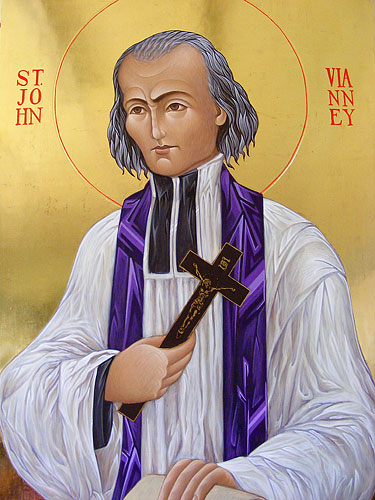
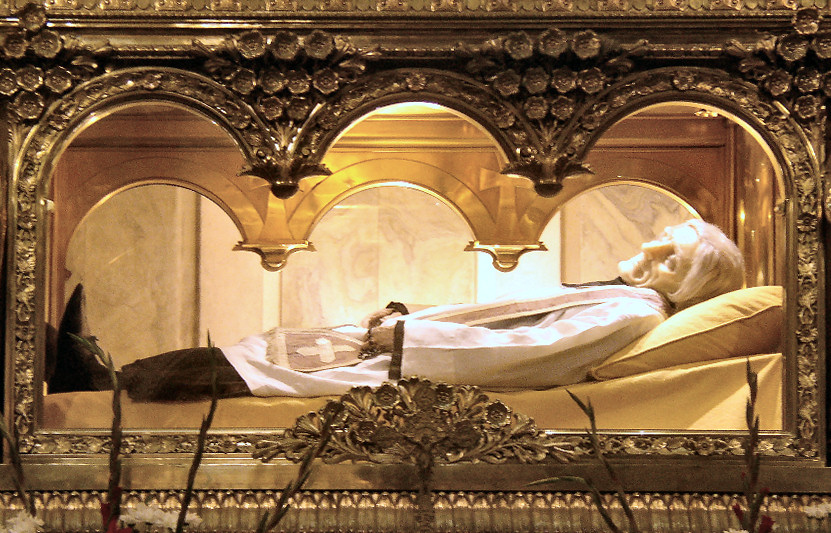
“My children, we are in reality only what we are in the eyes of God, and nothing more.” -St. John Vianney
“See, my children, we must reflect that we have a soul to save, and an eternity that awaits us. The world, its riches, pleasures, and honors will pass away; heaven and hell will never pass away. Let us take care, then. The saints did not all begin well; but they all ended well. We have begun badly; let us end well, and we shall go one day and meet them in heaven.”
–St. John Vianney
“God has created my heart only for Himself. He asks me to give it to Him that He may make it happy.” –St. John Vianney
“Let us go often to the foot of the cross…we shall learn there what God has done for us, and what we ought to do for Him.” -St. John Vianney
“I throw myself at the foot of the Tabernacle like a dog at the foot of his Master.” -St. John Vianney
“You cannot please both God and the world at the same time, they are utterly opposed to each other in their thoughts, their desires, and their actions.”
-St. John Vianney
“He is there in the Sacrament of His love, sighing and interceding incessantly with His Father for sinners.”
— St. John Vianney
“When you awake in the night, transport yourself quickly in spirit before the Tabernacle, saying: ‘Behold, my God, I come to adore You, to praise, thank, and love you, and to keep you company with all the Angels.'”
–St. John Vianney
“If people would do for God what they do for the world, what a great number of Christians would go to Heaven.”
-St John Vianney
“Prayer is the inner bath of love into which the soul plunges itself.”
—St. John Vianney
“The fire of Purgatory is the same as the fire of Hell; the difference between them is that the fire of Purgatory is not everlasting.”
—St. John Vianney
“If we could comprehend all the good things contained in Holy Communion, nothing more would be wanting to content the heart of man.”
—St. John Vianney
“Here is a rule for everyday life: Do not do anything which you cannot offer to God.”
-St. John Vianney
“Let us open the door of the Sacred Heart, and shut ourselves in for a moment amidst its divine flames; we shall then realize what God’s love means.” -St. John Vianney
“God looks neither at long nor beautiful prayers, but at those that come from the heart.” -St. John Vianney
“My little children, reflect on these words: the Christian’s treasure is not on earth but in heaven.”
-St. John Vianney
“The soul hungers for God, and nothing but God can satiate it. Therefore He came to dwell on earth and assumed a Body in order that this Body might become the Food of our souls.”
–St. John Vianney
“If we could comprehend all the good things contained in Holy Communion, nothing more would be wanting to content the heart of man.” –St. John Vianney
“I tell you that you have less to suffer in following the cross than in serving the world and its pleasures.”
-St. John Vianney
“The happiness of man on earth, my children, is to be very good… We are in this world for no other end than to serve and love the good God.” -St. John Vianney
“We have only to turn to the Blessed Virgin to be heard. Her heart is all love.” -St. John Vianney
“[God] must be all around us as the air we breathe.” -St John Vianney
“I want to lose myself and never find myself again, except in God!” -St John Vianney
“Upon receiving Holy Communion, the Adorable Blood of Jesus Christ really flows in our veins and His Flesh is really blended with ours.”–St. John Vianney
“The Saints were so completely dead to themselves that they cared very little whether others agreed with them or not.” -St John Vianney, Patron of the Year of Priests
“Man has a beautiful office, that of praying and loving. You pray, you love – that is the happiness of man upon the earth. Prayer is nothing else than union with God. When our heart is pure and united to God, we feel within ourselves a joy, a sweetness that inebriates, a light that dazzles us.” –St. John Vianney
“He who, when tempted, makes the Sign of the Cross with devotion, makes hell tremble and heaven rejoice.” -St. John Vianney
“Happy is he that lives to love, receive, and serve God!” -St. John Vianney
“You must accept your cross; if you bear it courageously it will carry you to Heaven.” –St. John Vianney
“You don’t need to wallow in guilt. Wallow in the mercy of God.” -St. John Vianney
“When we are walking on the street, let us fix our eyes on our Lord bearing his cross; on the Blessed Virgin who is looking at us; on our guardian angel who is by our side.” -St. John Vianney
“In the soul which is united to God, it is always spring.” –St. John Vianney
“My God, how we ought to pity a priest who celebrates (the Mass) as if he were engaged in something ordinary.” -St John Mary Vianney
“The first thing about the angels we ought to imitate is their consciousness of the presence of God.” -St. John Vianney
“Put all the good works in the history of the world next to one Mass, and it will be like a grain of sand next to a mountain.” -St John Vianney
“Listen well to this, my children. When I first came to Ars, there was a man who never passed the church without going in. In the morning on his way to work, and in the evening on his way home, he left his spade and pick-axe in the porch, and he spent a long time in adoration before the Blessed Sacrament. Oh! how I loved to see that! I asked him once what he said to Our Lord during the long visits he made Him. Do you know what he told me? ‘Eh, Monsieur le Curé I say nothing to Him, I look at Him and He looks at me!’ How beautiful, my children, how beautiful!” -Saint John Vianney
“Love of Suffering for Love of Jesus! Whether we will or not, we must suffer. There are some who suffer like the good thief, and others like the bad thief. They both suffered equally. But one knew how to make his sufferings meritorious, he accepted them in the spirit of reparation, and turning towards Jesus crucified, he received from His mouth these beautiful words: “This day thou shalt be with Me in Paradise” The other, on the contrary, cried out, uttered imprecations and blasphemies, and expired in the most frightful despair. There are two ways of suffering – to suffer with love, and to suffer without love. The saints suffered everything with joy, patience, and perseverance, because they loved. As for us, we suffer with anger, vexation, and weariness, because we do not love. If we loved God, we should love crosses, we should wish for them, we should take pleasure in them. . . . We should be happy to be able to suffer for the love of Him who lovingly suffered for us. Of what do we complain? Alas! The poor infidels, who have not the happiness of knowing God and His infinite loveliness, have the same crosses that we have; but they have not the same consolations. You say it is hard? No, it is easy, it is consoling, it is sweet; it is happiness. Only we must love while we suffer, and suffer while we love.
On the Way of the Cross, you see, my children, only the first step is painful. Our greatest cross is the fear of crosses. . . . We have not the courage to carry our cross, and we are very much mistaken; for, whatever we do, the cross holds us tight — we cannot escape from it. What, then, have we to lose? Why not love our crosses and make use of them to take us to Heaven? But, on the contrary, most men turn their backs upon crosses, and fly before them. The more they run, the more the cross pursues them, the more it strikes and crushes them with burdens. . . . If you were wise, you would go to meet it like Saint Andrew, who said, when he saw the cross prepared for him and raised up into the air, “Hail O good cross! O admirable cross! O desirable cross! Receive me into thine arms, withdraw me from among men, and restore me to my Master, who redeemed me through thee. ”
On the road of life we must walk over crosses and troubles to reach our true country. The cross is the ladder to Heaven. . . . How consoling it is to suffer under the eyes of God, and to be able to say in the evening, at our examination of conscience: “Come, my soul! Thou hast had today two or three hours of resemblance to Jesus Christ. Thou hast been scourged, crowned with thorns, crucified with Him!” Oh what a treasure for the hour of death! How sweet it is to die, when we have lived on the cross! We ought to run after crosses as the miser runs after money. . . . Nothing but crosses will reassure us at the Day of Judgment. When that day shall come, we shall be happy in our misfortunes, proud of our humiliations, and rich in our sacrifices!
If someone said to you, “I should like to become rich; what must I do?” you would answer him, “You must labor:’ Well, in order to get to Heaven, we must suffer. Our Lord shows us the way in the person of Simon the Cyrenian; He calls His friends to carry His Cross after Him. The good God wishes us never to lose sight of the Cross, therefore it is placed everywhere; by the roadside, on the heights, in the public squares — in order that at the sight of it we may say, “See how God has loved us!” The Cross embraces the world; it is planted at the four corners of the world; there is a share of it for all. Crosses are on the road to Heaven like a fine bridge of stone over a river, by which to pass it. Christians who do not suffer pass this river by a frail bridge, a bridge of wire, always ready to give way under their feet.
He who does not love the Cross may indeed be saved, but with great difficulty: he will be a little star in the firmament. He who shall have suffered and fought for his God will shine like a beautiful sun. Crosses, transformed by the flames of love, are like a bundle of thorns thrown into the fire, and reduced by the fire to ashes. The thorns are hard, but the ashes are soft. Oh, how much sweetness do souls experience that are all for God in suffering! It is like a mixture into which one puts a great deal of oil: the vinegar remains vinegar; but the oil corrects its bitterness, and it can scarcely be perceived.
If you put fine grapes into the wine press, there will come out a delicious juice: our soul, in the wine press of the Cross, gives out a juice that nourishes and strengthens it. When we have no crosses, we are arid: if we bear the crosses with resignation, we feel a joy, a happiness, a sweetness! . . .
It is the beginning of Heaven. The good God, the Blessed Virgin, the angels, and the saints, surround us; they are by our side, and see us. The passage to the other life of the good Christian tried by affliction, is like that of a person being carried on a bed of roses. Thorns give out a perfume, and the Cross breathes forth sweetness. But we must squeeze the thorns in our hands, and press the Cross to our heart, that they may give out the juice they contain.
The Cross gave peace to the world; and it must bring peace to our hearts. All our miseries come from not loving the Cross. The fear of crosses increases them. A cross carried simply, and without those returns of self-love which exaggerate troubles, is no longer a cross. Peaceable suffering is no longer suffering. We complain of suffering! We should have much more reason to complain of not suffering, since nothing makes us more like Our Lord than carrying His Cross. Oh, what a beautiful union of the soul with Our Lord Jesus Christ by the love and the virtue of His Cross! I do not understand how a Christian can dislike the Cross, and fly from it! Does he not at the same time fly from Him who has deigned to be fastened to it, and to die for us?
Contradictions bring us to the foot of the Cross, and the Cross to the gate of Heaven. That we may get there, we must be trodden upon, we must be set at naught, despised, crushed. . . . There are no happy people in this world but those who enjoy calmness of mind in the midst of the troubles of life: they taste the joys of the children of God. . . . All pains are sweet when we suffer in union with Our Lord. . . . To suffer! What does it signify? It is only a moment. If we could go and pass a week in Heaven, we should understand the value of this moment of suffering. We should find no cross heavy enough, no trial bitter enough. . . . The Cross is the gift that God makes to His friends.
How beautiful it is to offer ourselves every morning in sacrifice to the good God, and to accept everything in expiation of our sins!
I tried it for four or five years. I was well calumniated, well contradicted, well knocked about. Oh, I had crosses indeed! I had almost more than I could carry! Then I took to asking for love of crosses, and I was happy. I said to myself, truly there is no happiness but in this! We must never think from whence crosses come: they come from God. It is always God Who gives us this way of proving our love to Him.” -St John Vianney
“What does Jesus Christ do in the Eucharist? It is God Who, as our Savior, offers Himself each day for us to his Father’s justice. If you are in difficulties and sorrows, He will comfort and relieve you. If you are sick, He will either cure you or give you strength to suffer so as to merit Heaven. If the devil, the world, and the flesh are making war upon you, He will give you the weapons with which to fight, to resist, and to win victory. If you are poor, He will enrich you with all sorts of riches for time and eternity. Let us open the door of His sacred and adorable Heart, and be wrapped about for an instant by the flames of His love, and we shall see what a God Who loves us can do. O my God, who shall be able to comprehend?”
–St. John Vianney
Prayer of St John Vianney
I love You, O my God, and my only desire is to love You until the last breath of my life.
I love You, O my infinitely lovable God, and I would rather die loving You, than live without loving You.
I love You, Lord and the only grace I ask is to love You eternally…
My God, if my tongue cannot say in every moment that I love You, I want my heart to repeat it to You as often as I draw breath.
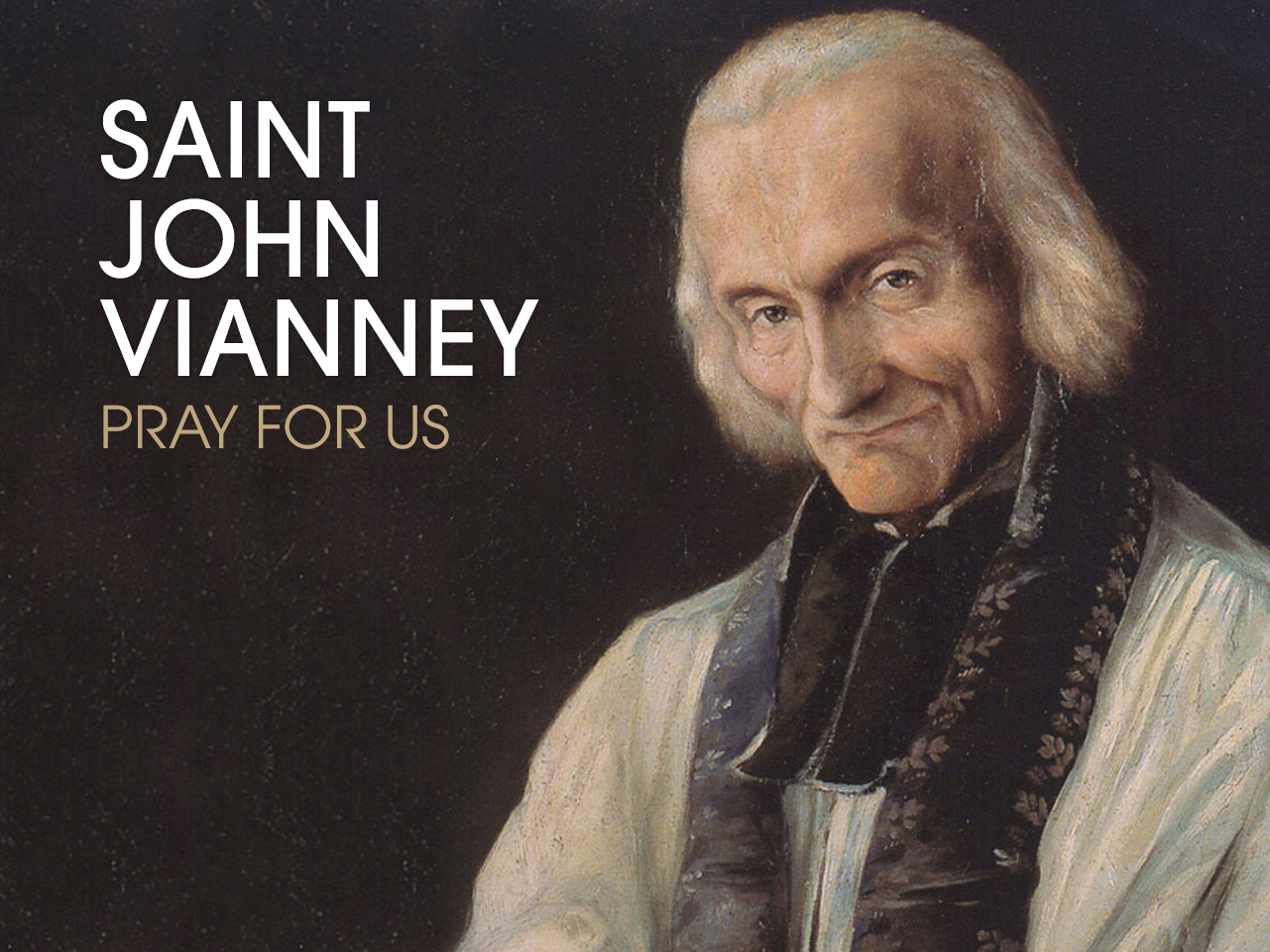
Love,
Matthew

